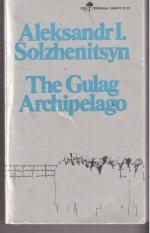
|
| Name: _________________________ | Period: ___________________ |
This test consists of 5 short answer questions, 10 short essay questions, and 1 (of 3) essay topics.
Short Answer Questions
1. Which of the following prisons was considered to be the center of Gulag?
2. What does Solzhenitsyn claim happens to a person when he "lives in a graveyard"?
3. Which of the following terms was used to describe prisoners just arriving to exile?
4. In Zihma, what did prisoners being transported on foot use as nets to catch fish in the river?
5. How old was Solzhenitsyn when he used to listen to the "boring, pallid daily records" of the trials?
Short Essay Questions
1. What would prisoners drink while being transported?
2. Why did the Bolshevik Army turn on the church, and what do it get in return?
3. How did prisoners figure out where they were being relocated, particularly when being sent into exile?
4. Who was in charge of preparing stolypins for prisoner use, and how were the stolypins prepared?
5. What were stolypins?
6. When and where did the first Gulag hunger strike occur?
7. How did the public react to Vlasov's sentencing at his trial?
8. For what offenses could prisoners be sent to the punishment cells?
9. Why was capital punishment banned in 1920?
10. What happened in the trial of Shakhty?
Essay Topics
Write an essay for ONE of the following topics:
Essay Topic 1
When the widespread arrests started sweeping through Russia, few political prisoners fought against their arrests. First, explain why many men didn't fight against their arrests, and what they thought would happen to them in their first days within the camp. Next, explain how hope was slowly dashed, and why many prisoners refused to commit suicide or attempt escape.
Essay Topic 2
Many prisoners were sent to the Gulag labor camps after being considered counter-revolutionary. First, explain how counter-revolutionary behavior is defined in the text and who was at the forefront of creating those definitions. Next, explain how the work camps struggled to re-educate the prisoners to rid them of their counter-revolutionary tendencies?
Essay Topic 3
When Stalin took over government power from Lenin in 1929, the definition of government criminals changed drastically. Explain how Lenin had defined his criminals while in power, and compare/contrast the definition to Stalin's. Explaom what constituted being labeled a "counter-revolutionist" under Stalin's rule, and what his punishment for these crimes was.
|
This section contains 898 words (approx. 3 pages at 300 words per page) |

|




